The bacteria of the genus Haemophilus influenzae are rod-shaped pathogens that usually live on the mucous membranes of humans and are transmitted by means of droplet infection. The genus of hemophilia includes 16 species, almost all of which can live without oxygen. The Haemophilus influenzae bacterium - a species of the genus Haemophilia - can cause serious illnesses, some of which are fatal if left untreated. Children should definitely be vaccinated against the Haemophilus influenzae bacterium.
What is Haemophilus Influenzae?
The bacterium Haemophilus influenzae belonging to the genus Haemophilus influenzae is a bacterium transmitted by droplet infection, which settles and multiplies mainly on the mucous membranes of humans, preferably in the ear, nose and throat.
The Haemophilus influenzae bacterium causes numerous inflammatory diseases, such as colds, bronchial infections and pneumonia. In children under 5 in particular, the Haemophilus influenzae bacterium triggers severe meningitis, which is usually fatal or causes severe brain damage. Your doctor will prescribe an antibiotic to treat an infection with the Haemophilus influenzae bacterium.
Meaning & function
The Haemophilus influenzae bacterium can be transmitted through a droplet infection. In the case of a droplet infection, the pathogens enter the upper respiratory tract of humans, for example by sneezing or coughing. In the area of the upper respiratory tract, the bacterium usually multiplies very quickly, as the well-moistened and warm mucous membranes are the optimal living environment for the bacterium.
A person with a good immune system usually fights the bacterium himself or the patient receives a mild antibiotic. However, bacterial infection is often preceded by virus infection. The immune system is weakened due to the virus infection and can no longer adequately defend itself against the bacterial infection with Haemophilus influenzae. In such a case, bronchitis usually occurs first, followed by pneumonia.
The body is then no longer able to fight off the bacterium without medical help. Taking an antibiotic is indicated. In children under 5 years of age, the Haemophilus influenzae bacterium is considered to cause meningitis (meningitis). If left untreated, meningitis is fatal in the vast majority of cases within a few days. Even if meningitis is survived, the brain usually shows irreparable damage, the person is physically and / or mentally severely damaged.
Around 400,000 children worldwide die of meningitis caused by the Haemophilus influenzae bacterium. It is therefore recommended that children be vaccinated against the bacterium. After a vaccination, the child is immune to the bacterium and can no longer develop meningitis caused by the Haemophilus influenzae bacterium. The vaccination is already carried out in infancy as part of a multiple vaccination (HIB vaccination).
Illnesses & ailments
Any infection with the Haemophilus influenzae bacterium is a potential danger to humans, and an infection can be fatal, especially for children under 5 years of age. Usually a viral disease and a bacterial infection are closely related in time.
The patient first notices a harmless cold that does not get better over time, but rather gets worse. Such a "dragged on cold" is usually a bacterial infection that quickly leads to a serious illness in the body that has already been weakened by the virus. The patient will usually develop bronchitis. If this remains untreated, pneumonia can be the result. Pneumonia is very unlikely to heal without taking a special antibiotic; Going to the doctor or a hospital is now urgently recommended at the latest.
Infection with the Haemophilus influenzae bacterium has a particularly devastating effect on children under 5 years of age. In such young children, the Haemophilus influenzae bacterium usually causes meningitis. Within a very short period of time, the child suffers from massive headaches, a very high fever, vomiting, dizziness and sometimes from deficiency symptoms.
Only an immediate intravenous administration of a high-dose antibiotic can save the child from death. If a child develops a described disease course, an ambulance must be called immediately so that the child can receive medical help immediately. Children who survive meningitis usually suffer lifelong brain damage with permanent physical and mental disabilities.
Doctors recommend vaccination against the Haemophilus influenzae bacterium. The vaccination is carried out in infancy as part of a U-examination as a multiple vaccination and is harmless. Some children have a mild fever for two to three days and redness around the puncture site. Most children, however, do not feel the vaccination and receive lifelong protection against the Haemophilus influenzae bacterium.

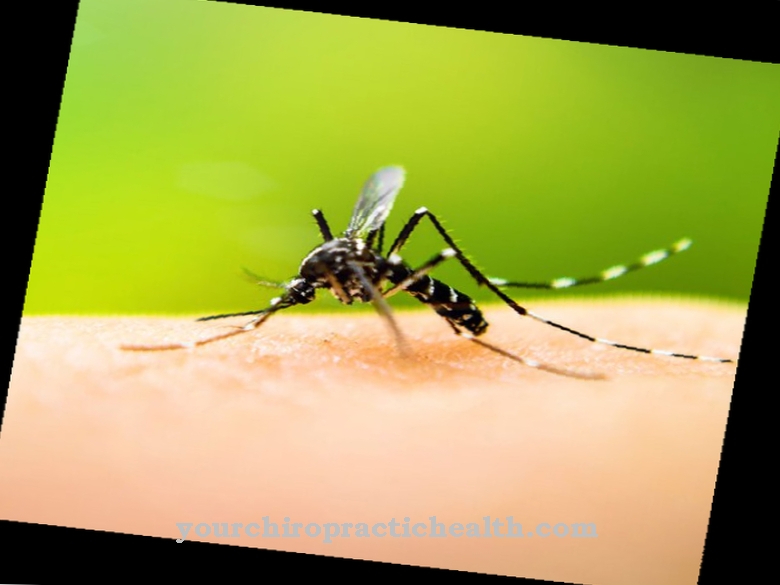
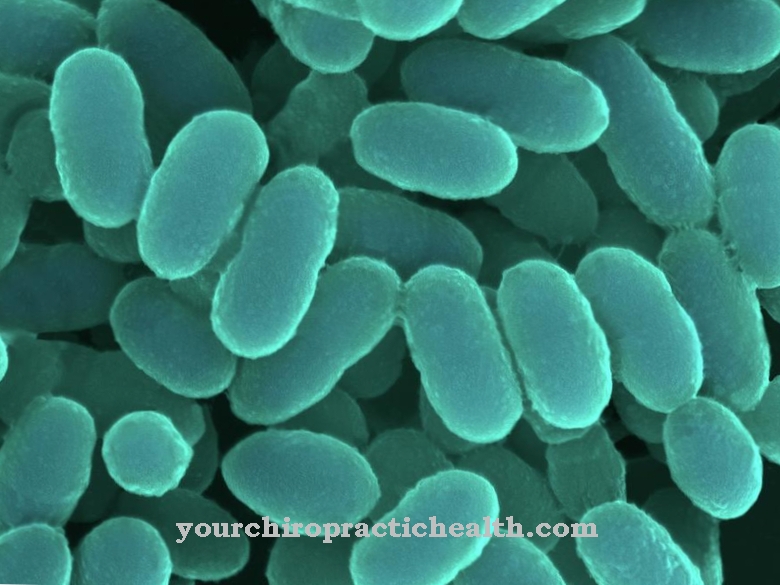
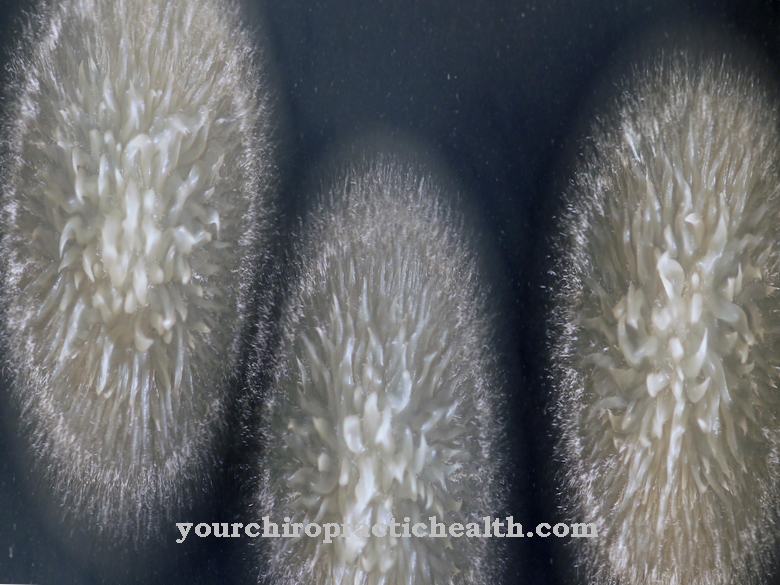

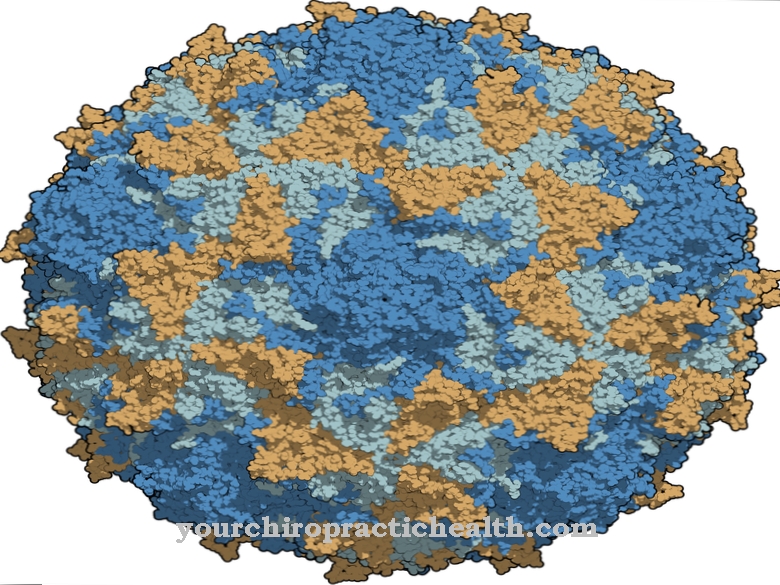
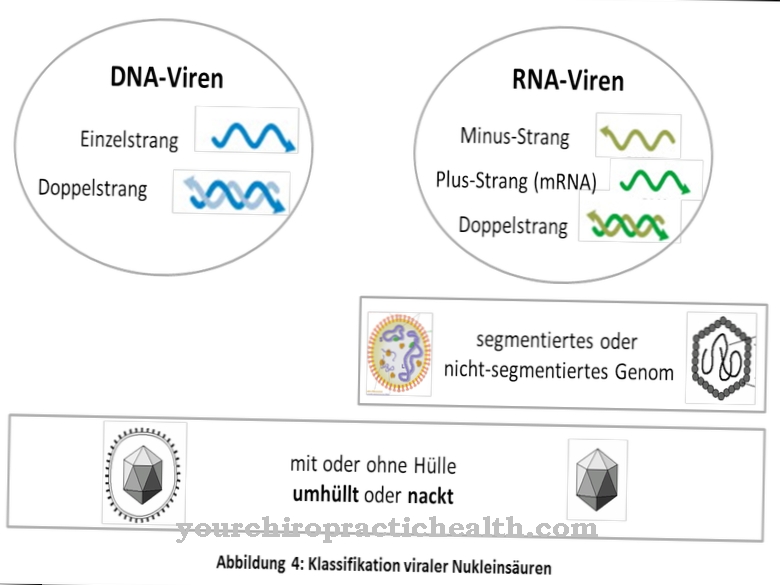

















.jpg)



